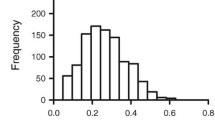Summary
As he/she approaches the end of life, the healthy elderly person comes to be seen rather as a “biological curiosity” than as a normal case. For laboratory testing it becomes increasingly difficult to determine appropriately stratified and statistically relevant reference groups. More appropriate would be individual monitoring, which, however, requires long-term stable quality in laboratory analyses. Despite “consolidation” in laboratory medicine, the pre-analytical phase, which is especially important in the elderly, remains underestimated. This problem is aggravated by insufficient harmonisation between laboratory tests, especially when point-of-care testing is included. Since in geriatrics the maintenance of life quality is more important than curative therapy, clinicians are forced to undergo therapeutic compromises applying symptomatic, supportive or palliative therapies. In this situation, information on “still remaining functional capacities” of organs is particularly helpful. Diagnostic problems resulting from underestimation of “multi-morbidity” and especially “multi-aetiology” can be complicated by “degradation of clinical information”, especially in patients in cognitive and/or physical decline. The specific purpose of “geriatric” laboratory medicine seems to induce a change of paradigms: not only statistically established “evidence”, but “individuality” in a single patient will need more profound insight. Not so much differentiation between “physiology” and “pathology”, but the consideration of “clinical individuality” as relative risk in dimension of time is of importance.
Zusammenfassung
Je mehr man sich dem Lebensende nähert, umso mehr wird ein gesunder alter Mensch als eine „biologische Kuriosität“ und nicht als Regelfall betrachtet. Für Labordiagnostik wird es zunehmend problematisch entsprechend stratifizierte und statistisch relevante Referenzgruppe zu bestimmen. Wesentlich mehr kommt es hier auf individuelles Monitoring an, das jedoch langzeit-stabile Qualität der Laborbestimmungen voraussetzt. Trotz „Konsolidierung“ in der Labormedizin bleibt die „prä-analytische Phase, die bei alten Menschen besonders bedeutend ist, unberücksichtigt. Die Problematik wird durch ungenügende Harmonisierung der Labor-Bestimmungen verschärft, insbesondere wenn auch patientennahe Tests verwendet werden. Da in der Geriatrie Erhaltung der Lebensqualität wichtiger als Kurativtherapie ist, haben sich Kliniker auf therapeutische Kompromisse, symptomatische, supportive und palliative Therapien einzulassen. In diesen Situationen sind Informationen über „noch verbliebene Funktionskapazität der Organe“ besonders wichtig. Unterbewertung von „Multimorbidität“ und insbesondere der „Multiätiologie“ kann zu diagnostischen Problemen führen, was durch „Zerfall der klinischer Information“ aufgrund von geistig bzw. körperlich beeinträchtigten Patienten noch verstärkt wird. Der besonderen Bestimmung zufolge wird die „geriatrische“ Labormedizin einen Paradigmenwechsel einzugehen haben: Nicht nur statistisch ermittelte „Evidenz“, sondern „konkreter Patient‘“ wird genauer zu betrachten sein, und zwar weniger im Sinne der Differenzierung zwischen „Physiologie“ und „Pathologie“, sondern im Sinne der „klinischen Individualität“ als eines relativen Risikos in zeitlicher Dimension.
Similar content being viewed by others
Author information
Authors and Affiliations
Corresponding author
Rights and permissions
About this article
Cite this article
Lapin, A., Böhmer, F. Laboratory diagnosis and geriatrics: More than just reference intervals for the elderly .... Wien Med Wochenschr 155, 30–35 (2005). https://doi.org/10.1007/s10354-004-0134-4
Received:
Accepted:
Issue Date:
DOI: https://doi.org/10.1007/s10354-004-0134-4
Keywords
- Geriatrics
- Individuality
- Stratification
- Cohort phenomenon
- Functionality
- Prediction
- Preanalytics
- Consolidation
- Point-of-care testing
- Out-sourcing
- Multimorbidity




